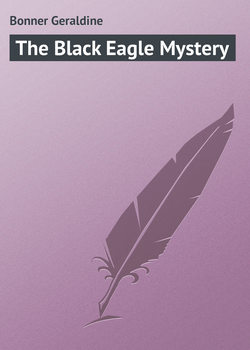Читать книгу The Black Eagle Mystery - Bonner Geraldine - Страница 7
CHAPTER VI
JACK TELLS THE STORY
ОглавлениеThis chapter in our composite story falls to me, not because I can write it better but because I was present at that strange interview which changed the whole face of the Harland case. Even now I can feel the tightening of the muscles, the horrified chill, as we learned, in one of the most unexpected and startling revelations ever made in a lawyer's office, the true significance of the supposed suicide.
It was the morning after the night ride of Babbitts and O'Mally, and I was late at the office. The matter had been arranged after I left the evening before and I knew nothing of it. As I entered the building I ran into Babbitts, who was going to the Whitney offices to report on his failure and in the hopes that some new lead might have cropped up. Drawing me to the side of the hall he told me of their expedition. I listened with the greatest interest and surprise. It struck me as amazing and rather horrible. Until I heard it I had not believed the story of the typewriter girl – that Barker was in love with Miss Whitehall – but in the face of such evidence I had nothing to say.
We were both so engrossed that neither noticed a woman holding a child by the hand and moving uncertainly about our vicinity. It wasn't till the story was over and we were walking toward the elevator that I was conscious of her, looking this way and that, jostled by the men and evidently scared and bewildered. Judging her too timid to ask her way, and too unused to such surroundings – she looked poor and shabby – to consult the office directory on the wall, I stopped and asked her where she wanted to go.
She gave a start and said with a brogue as rich as butter:
"It's to L'yer Whitney's office I'm bound, but where is it I don't know and it's afeared I am to be demandin' the way with everyone runnin' by me like hares."
"I'm going there myself," I said, "I'll take you."
She bubbled out in relieved thanks and followed us into the elevator. As the car shot up I looked her over wondering what she could want with the chief. She was evidently a working woman, neatly dressed in a dark coat and small black hat under which her hair was drawn back smooth and tight. Her face was of the best Irish type, round, rosy and honest. One of her hands clasped the child's, his little fingers crumpled inside her rough, red ones. She addressed him as "Dannie," and when passengers crowded in and out, drew him up against her, with a curious, soft tenderness that seemed instinctive.
